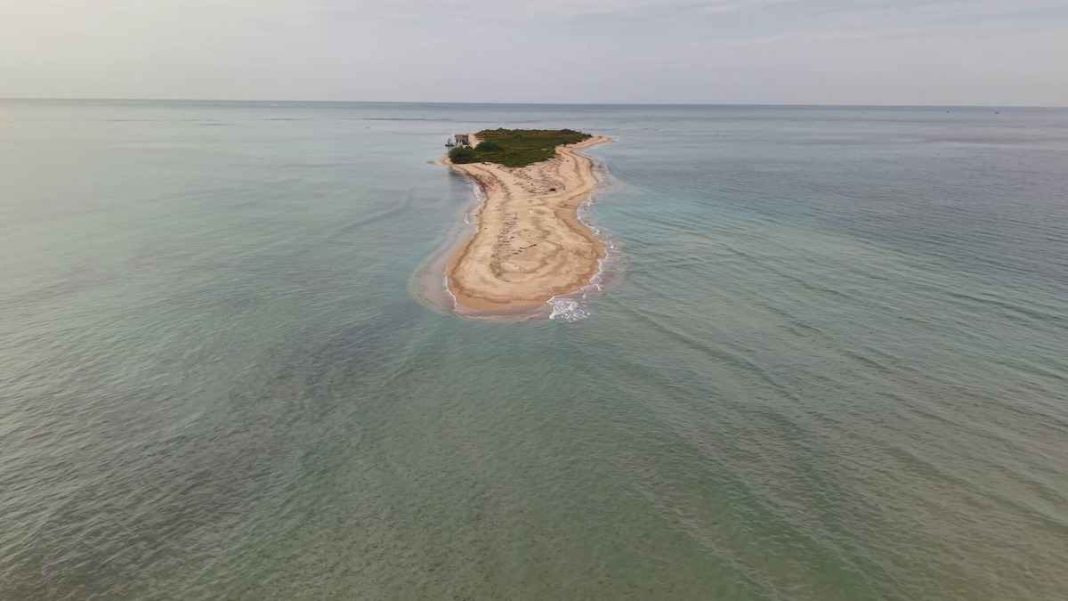The Tamil Nadu government has launched a significant initiative to restore Kariyachalli Island, one of the 21 islands in the Gulf of Mannar Marine National Park. Following the successful rejuvenation of Vaan Island, this restoration marks another step under the Tamil Nadu Sustainably Harnessing Ocean Resource (TNSHORE) program. Supported by the World Bank and the Tamil Nadu government, the ₹50 crore project is led by the Forest Department, in collaboration with IIT-Madras and the Suganthi Devadason Marine Research Institute.
Kariyachalli Island: A Shrinking Biodiversity Haven
Nestled in the ecologically rich Gulf of Mannar, Kariyachalli Island once spanned 20.85 hectares in 1969. Over the decades, coastal erosion and climate change have taken a severe toll. By 2017, the island had shrunk to 5.97 hectares, and current figures show a further decline—3.14 hectares at high tide and 4.12 hectares at low tide. This rapid degradation underscores the urgent need for intervention.
Coral Reefs: Nature’s Coastal Defenders
Coral reefs are crucial not just for marine biodiversity but also for coastal protection. Acting as natural wave breakers, they reduce the impact of storms and erosion. The Gulf of Mannar, one of India’s four major coral reef ecosystems, has suffered due to destructive practices like coral mining, which was officially banned in 2005. This exploitation led to the loss of key reef-building species and widespread habitat damage.
Restoration Blueprint: Artificial Reefs and Biodiversity Revival
The Kariyachalli restoration plan includes the deployment of 8,500 artificial reef modules. These structures are designed to:
- Shield the island from erosion
- Create thriving habitats for fish and marine life
- Support the regeneration of coral reefs and seagrass beds, which are vital for underwater ecosystems
This approach combines ecological engineering with biodiversity recovery.
Empowering Local Communities
Over 300 local community members will actively participate in the project. Their involvement ensures that restoration efforts are inclusive, generating employment while preserving the marine resources that sustain their livelihoods. Community stewardship is central to the project’s long-term success.
Grounded in Science: Data-Driven Conservation
Prior to implementation, the initiative underwent thorough environmental and social impact assessments. Experts from IIT-Madras conducted studies on wave patterns and bathymetry, providing vital insights into the island’s geophysical dynamics. These findings shaped a strategy tailored to Kariyachalli’s unique restoration needs.
Looking Ahead: Hope for a Fragile Ecosystem
While the restoration of Kariyachalli Island is a long-term endeavor, the foundation has been laid for meaningful ecological recovery. Experts caution that it will take time to reverse decades of damage, but the project aims to:
- Rebuild marine biodiversity
- Fortify the island against further degradation
- Enhance climate resilience
- Sustain the livelihoods of coastal communities
This effort stands as a beacon of hope in India’s coastal conservation journey.




